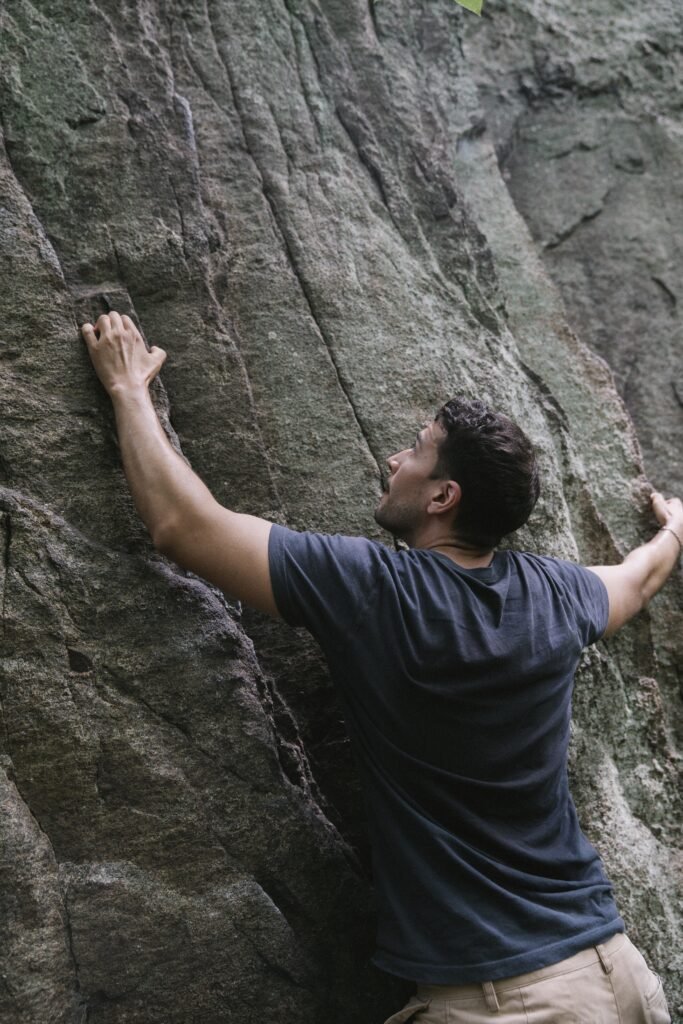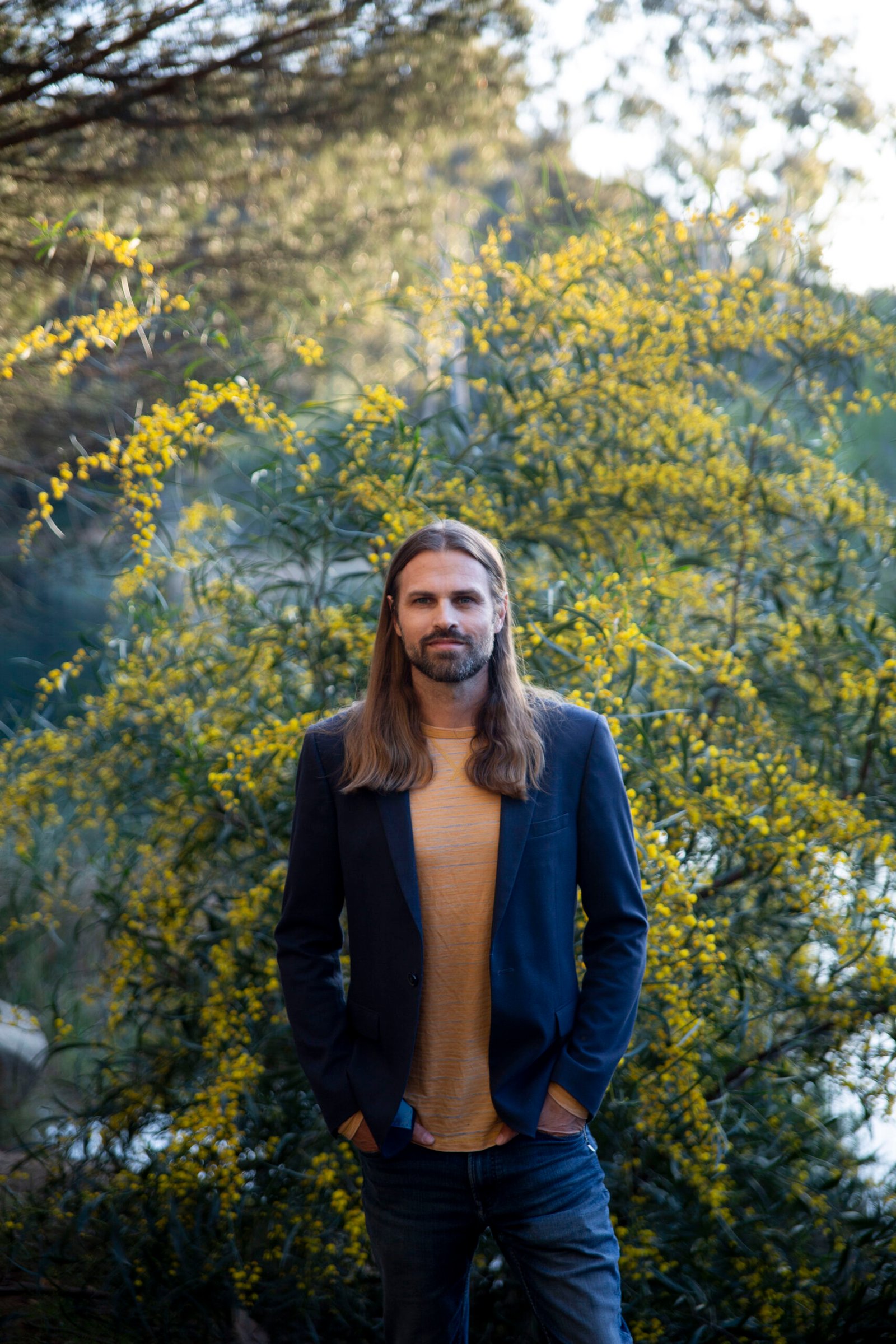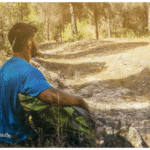In a world that moves fast and encourages numbing over feeling, wilderness therapy offers something radically different—stillness, challenge, presence, and truth. For adult men battling drug addiction, it can be a powerful way to press pause, reset, and reimagine life in recovery.

The Playbook To Get Your College-Aged Son Into Alcohol & or Drug Rehab
As a parent, one of the most painful experiences you can go through is watching your son struggle with addiction. You raised him, supported his goals, and dreamed of his future. But now you’re left wondering how things got off track—and whether or not it’s even possible to help him.
If you have a college-age son, this may be even more difficult because they are fighting for their independence and working towards self-reliance. They may not listen to you, especially if they feel like you’re meddling in their affairs.
But addiction doesn’t care how old a person is. It doesn’t care about age, GPA, or your goals in life. It creeps in quietly, masked by “normal” college behaviors like partying or blowing off steam. The truth is, more young men today are turning to substances like alcohol, marijuana, prescription stimulants, and opioids than ever before.
So how do you help a college-age son who is clearly struggling with a substance use disorder (SUD)?
If you’re feeling helpless, you’re not alone. One of the programs you can try for your son is wilderness therapy—specifically one that is designed to address the issues men face that get in the way of their recovery.
Sacred Journey Recovery is a men-only addiction treatment center dedicated to providing compassionate, holistic care to men of all ages. Your son can break free from addiction and rediscover a purposeful, fulfilling life with the aid of evidence-based therapies, spiritual exploration, and the restorative power of nature.
Why College-Age Men Are Vulnerable to Addiction
Sacred Journey Recovery guides men through the transformative process of overcoming substance abuse and co-occurring disorders. Our adventure-based treatment program offers a safe and structured environment where men can heal emotionally, mentally, spiritually, and physically.
But to properly support your son throughout this journey, you need to understand why college-age men are vulnerable to addiction as well as the steps you can take to guide him toward the treatment he needs.
Young men in college are transitioning from adolescence to adulthood. This is a naturally challenging stage of life, and some men do not have a strong roadmap for emotional regulation and stress management.
While they’re busy trying to figure out who they are as an adult, they may come across distractions and temptations like drugs and alcohol. Some common risk factors for substance abuse among college-age men include:
Social and Academic Pressure
College life is full of high expectations—both social and academic. Young men who are worried about their future may feel pressure to perform well in school: landing internships, maintaining scholarships, and participating in extracurricular activities. They will try to juggle all of these while trying to fit in with their peers. It’s a balancing act that can lead to unhealthy coping mechanisms like binge drinking or drug use at parties. Afraid of rejection, they may succumb to peer pressure and take substances even if they don’t want to.
What seems like a quick way to escape stress or feel more confident in social settings may only lead to bigger problems down the line.
Mental Health Struggles
Many college-age men face untreated or undiagnosed mental health conditions like anxiety, depression, or ADHD. This is because of cultural norms and expectations surrounding masculinity.
Young men are often discouraged from seeking help or even just expressing their vulnerability. This leads them to self-medicate with drugs or alcohol instead. Without proper support, these mental health challenges can spiral, making addiction both more likely and more difficult to recognize early.
This is why it is so common for drug addiction to co-occur with mental health issues. This is also why Sacred Journey Recovery addresses co-occurring disorders alongside SUDs—you can’t treat one without dealing with the other.
Isolation
Despite being surrounded by people, many college students—especially men—feel deeply alone. The pressure to appear strong or self-sufficient can prevent them from forming meaningful connections or asking for help. This emotional isolation can become a breeding ground for substance use, as drugs or alcohol may temporarily numb the discomfort or serve as a substitute for genuine companionship.
Regardless of the reason, substance use may quickly snowball into dependency. That’s why early intervention is critical.
How to Get Your College-Age Son into Addiction Treatment
Sacred Journey Recovery is a specialized men’s addiction treatment center that provides an environment where men can openly address gender-specific challenges. We offer a supportive, brotherhood-like atmosphere that encourages honesty, accountability, and long-term growth.
But it’s not easy to convince a college-age son to get into addiction treatment in the first place. Part of that is because of the stigma. Many people don’t even want to talk about addiction and rehab because they view it as a moral failing.
But if you’re going to guide your son towards the treatment he needs, you need to approach it with compassion—and for that you need to educate yourself on these topics. Breaking the stigma of addiction means acknowledging it as a medical condition that needs treatment rather than a sign of weakness.
At this age, young men value independence, so pushing too hard can only push him further away. Here are some steps you can take:

Step 1: Recognize the Signs of Addiction
The first step is to recognize the signs of substance abuse. In a college environment where drinking and experimentation are common, drug and alcohol abuse aren’t always obvious. At the same time, not every change in your son’s behavior means he’s addicted.
It’s all about knowing what to look for so you can distinguish normal growing pains from something more serious:
Behavioral Signs
- Dropping out of classes or declining grades
- Avoiding family calls or visits
- Erratic sleep habits and mood swings
- Stealing or asking for money frequently
- Neglecting personal hygiene
Psychological Signs
- Increased anxiety, paranoia, or depression
- Lack of motivation or interest in things he used to enjoy
- Easily agitated or emotionally numb
Physical Signs
- Bloodshot eyes, unusual weight changes
- Slurred speech or poor coordination
- Track marks or evidence of drug paraphernalia
If your gut is telling you something is wrong, listen to it. Addiction thrives in secrecy and denial.
Step 2: Prepare for the Conversation
In terms of talking to your son about seeking help, timing and tone are everything. Choose a calm, private moment when emotions aren’t running high.
Here, your research will come in handy as you will be able to talk to him about available treatment options. Be ready for pushback—but also be ready to set clear boundaries. Supporting your son does not mean coddling him or enabling his destructive behavior.
Remind him that you will be there to support him throughout his recovery journey, but if he refuses to pursue treatment, you need to be prepared to enforce those boundaries. Enabling his behavior will only keep him trapped in the cycle of addiction.
Always speak from a place of concern and love, focusing on how his behavior is affecting his health, relationships, and future. If necessary, work with a professional interventionist to help guide the conversation.
Step 3: Offer a Clear Path Forward
Don’t just tell him he needs help—show him exactly what that help looks like. Whether it’s a wilderness therapy program, a residential rehab center, or outpatient treatment near campus, provide specific options that fit his specific condition.
If traditional treatment in a clinical setting does not appeal to him, then an adventure-based treatment program done in the wilderness may be more suitable.
Offer to help with logistics, like making phone calls or arranging time off from school. The clearer and more supported the path, the easier it is for him to take the next step.
Step 4: Understand the Power of Wilderness Therapy
For college-age men, wilderness therapy can be a transformative experience. Unlike traditional rehab centers, wilderness programs take place in natural settings, far from the distractions and triggers of daily life.
This experiential form of treatment takes participants out of their everyday environment and places them in nature-based settings where they have to conquer the challenges of the great outdoors. Despite the outdoor setting, wilderness therapy is a structured and immersive approach that blends traditional therapy with outdoor survival and team-building activities. This paves the way for physical, emotional, and spiritual growth.
Wilderness treatment is especially effective for college-age men who thrive with hands-on, movement-based learning and benefit from environments that emphasize accountability, responsibility, and self-reliance.
Physical Challenge Builds Confidence
Wilderness therapy involves physically demanding tasks. Through hiking, camping, rock climbing, physical resilience training, and adventure-based challenges, Sacred Journey Recovery pushes men to confront their struggles with substance abuse head-on.
We believe true transformation begins where comfort ends. Sacred Journey Recovery helps participants forge a new path to healing by embracing challenges that test the mind, body, and spirit. Our wilderness treatment program will empower your son to step into the unknown and emerge stronger, more resilient, and purpose-driven.
Overcoming these physical challenges gives men that sense of achievement, reminding them that they are capable of beating addiction and reclaiming their lives. When you realize you are capable of enduring hardship and achieving your goals, you begin to trust yourself again. This lays the foundation for long-term sobriety.
It’s through fearless exploration that men discover their inner strength, allowing them to break free from the chains of their addiction. Every hike, climb, and challenge becomes a rite of passage into a life of clarity, brotherhood, and purpose.
Nature Offers Clarity
Being in nature removes the noise—both literal and emotional. Far from the stress of daily life and the temptations of substance use, young men are given the mental space to reflect on their lives, decisions, and goals. Nature has a calming, grounding effect that helps reduce anxiety and depression. This clarity allows for deeper therapy sessions and breakthroughs that can be harder to access in traditional clinical settings.
Each week at Sacred Journey Recovery is centered around an experience designed not only to challenge you physically but also to provide the support you need to grow. Whether you are camping, hiking, or going through team challenges, you can harness the energy of nature to empower your growth. You won’t just be talking about coping mechanisms—you will be applying them in real time.
This turbocharges what participants can learn within a short period of time in treatment. At Sacred Journey Recovery, we provide men with the tools to recover and an experience that will change them forever.
Brotherhood Building
Addiction recovery is not something you should attempt in isolation. In fact, healing happens in a pack. That is why Sacred Journey Recovery’s wilderness therapy is not a solo journey.
Here, participants form tight-knit groups and rely on each other to complete tasks, stay safe, and navigate challenges. This fosters a strong sense of brotherhood and camaraderie built on mutual support and accountability.
Integrated Therapy
Sacred Journey Recovery’s wilderness therapy doesn’t abandon evidence-based approaches—it integrates them. Licensed therapists facilitate group discussions, individual sessions, and skill-building exercises right in the field.
This holistic blend of cognitive behavioral therapy, mindfulness practices, and spiritual elements heals the body, mind, and spirit. This holistic approach is important because conquering addiction takes more than just stopping substance abuse. You need to address every aspect of it to ensure lasting recovery.
We offer a wide range of services, offering multiple levels of personalized care, from residential treatment to partial hospitalization, to intensive outpatient programs. Sacred Journey Recovery even provides relapse prevention and aftercare services to keep men on the right track over the long term.

Step 5: Choose Sacred Journey Recovery
Sacred Journey Recovery pairs professional expertise with genuine empathy, ensuring that your son can not only conquer the immediate challenges of addiction but also cultivate resilience and life skills they need for the future.
We offer flexible treatment plans that allow for a truly personalized path to healing because no two men are exactly the same.
Remember that as a parent, you are not alone in this struggle. What you need to keep in mind is that young men can and do recovery—with the right support, environment, and intervention. Wilderness therapy is not a quick fix, but it will set your son on the path to long-lasting sobriety by equipping them with the tools they need to overcome their substance abuse. For many college-age men, it’s exactly the reset they need to come back stronger, more grounded, and fully alive.
For more information on our services and admissions process, visit:
sacredjourneyrecovery.com/our-services.
We empower men to break free from addiction and build a life of strength, purpose, and lasting sobriety through adventure-based treatment and holistic healing.
Start a new chapter of your life, today.






